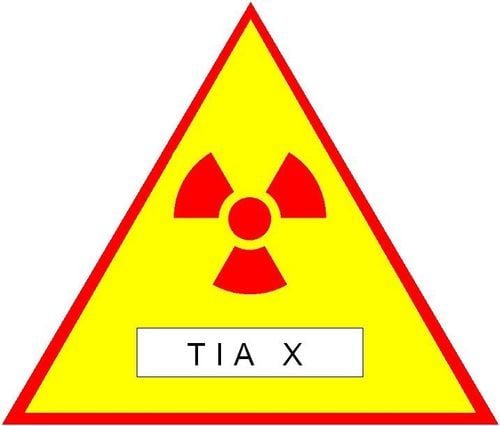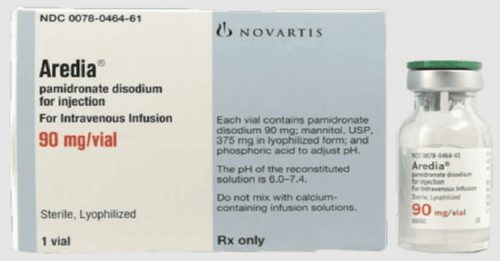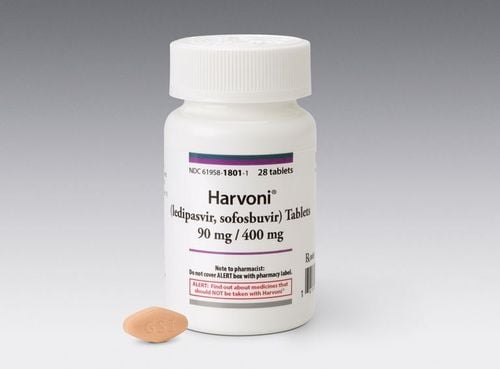This is an automatically translated article.
Renal cell carcinoma is one of the malignant cancers, seriously affecting the overall health of the patient, even leading to death if not treated promptly.
1. What is renal cell carcinoma?
Renal cell carcinoma occurs when the renal tubules develop a malignant tumor that interferes with and disrupts the main functions of the kidneys. Most people who are 50 years of age or older, drink a lot of alcohol, smoke, have hepatitis C or are obese.
2. Learn about metastatic renal cell carcinoma
In the early stages, the tumors are just formed and are located deep inside the kidney. They do not present any specific signs or symptoms to the patient. Therefore, it is difficult to recognize cancer through routine diagnostic tests in this stage.
When cancer cells are not controlled, they will continue to multiply and divide rapidly in the patient's body, causing pressure on surrounding tissues. To the final stage is also renal cell carcinoma, the malignant tumor will spread outside the kidney, attack other organs in the body such as: brain, lung, liver,... Case in point The most common form of this cancer is metastasis to the bone.
Some of the most common symptoms of metastatic renal cell carcinoma include:
A tumor in the kidney area; Lower back pain; There is blood in the urine ; Swelling in the ankle; Weak body ; Tired; Fever and uncontrolled weight loss, If the disease is not detected early and treated promptly, it can cause health problems, affect quality of life and even have a high risk of death.

Cơ thể suy nhược là dấu hiệu của bệnh ung thư biểu mô tế bào thận di căn
3. Renal cell carcinoma metastatic to bone
When cancer has grown and spread to the bones, it can cause the following problems for the patient:
Causes bone pain; Causes bones to become weaker and more prone to fracture if subjected to strong impact; When a bone is broken, the amount of calcium entering the blood will be released and accumulated in large quantities, leading to the dangerous phenomenon of increased calcium in the blood.
4. Treatments for renal cell carcinoma metastatic to bone
Currently, with the great development of medicine, patients suffering from malignant cancers have hope to be cured.
Treatment measures for renal cell carcinoma are commonly used, including: Chemotherapy, radiation therapy, biological therapy, surgery,...
The main goal of these methods is to help collect reduce or completely eliminate tumors from the body, alleviate pain symptoms caused by cancer, thereby significantly improving quality of life as well as life expectancy for patients.
Here are some of the main treatments commonly used for cases of renal cell carcinoma that has spread to the bone:
4.1. Surgical treatment of renal cell carcinoma with bone metastases
When cancer has metastasized to the bone, surgery may not be an effective treatment option. However, in certain cases, the doctor will base on the assessment of the cancer condition as well as the patient's health to decide whether to perform surgical treatment or not.
This treatment can help remove kidney tumors, relieve pain, prevent fractures, and make walking easier.
4.2. Immunotherapy
Also known as biological therapy. This therapy often uses drugs that fight kidney cancer, such as:
Interleukin-2; Interferon alpha; Checkpoint inhibitors, such as nivolumab (Opdivo).
4.3. Targeted therapy
This is the use of monoclonal antibodies or small molecule drugs to attack and inhibit specific genes or proteins found in kidney cancer cells. These drugs include:
Tyrosine kinase inhibitors (TKIs); Bevacizumab (Avastin): This is a man-made antibody drug. The main mechanism of action of the drug is to block the VEGF protein, reduce the blood supply to tumors and slow the growth of kidney cancer cells; MoTOR inhibitors: Help prevent renal cell carcinoma from developing.
4.4. Radiotherapy
High-energy X-rays to destroy kidney cancer-causing cells inside the patient's body. Besides, this measure also very effectively controls the symptoms of bone pain when renal cell carcinoma has metastasized. In cases where a bone has been broken, radiation therapy to kill cancer cells can help the bone heal faster and become stronger.

Chiếu tia X giúp tiêu diệt tế bào ung thư thận và ngăn ngừa gãy xương
4.5. Bone strengthening pills
Doctors may give cancer patients certain drugs that make bones stronger and prevent pain and fractures. These drugs include:
Bisphosphonates : These include drugs such as zoledronic acid (Zometa) that slow the action of cells that break down bone. In addition, they have the ability to improve bone damage, prevent fractures and reduce calcium in the blood of the patient; Denosumab (Xgeva): Functions like Bisphosphonates, helping to prevent fractures.
4.6. Palliative care measures
This remedy helps relieve symptoms such as pain, fatigue, and nausea caused by renal cell carcinoma. This treatment is unlikely to cure the disease, but it can help people feel better, improve quality of life and prolong life.
Palliative care includes the use of pain medications, relaxation techniques, and emotional support.
SEE ALSO: Diagnosis and treatment of renal cell carcinoma
5. How to control metastatic renal cell carcinoma?
Cancer control measures are an extremely important step in the treatment process, preventing the disease from getting worse. Here are some measures that you can refer to to take:
Stop smoking: It can be said that this is the main cause of renal cell carcinoma. Quitting smoking is essential to prevent cancer and protect the health of your family; Control blood pressure and weight: Patients should build a healthy diet and adhere to it. This not only helps patients keep their body shape and weight at a reasonable level, but also increases resistance and helps fight diseases; Regular exercise: Helps manage pain and dispel symptoms of fatigue caused by cancer. You can refer to doing gentle and moderate exercise such as yoga, walking,...; Periodic visit: Patients should visit the doctor according to the schedule of the doctor's appointment to monitor the progress of the disease. This helps you manage cancer more effectively, minimizing the worst cases of the disease. Currently, early cancer screening is considered the perfect measure in timely detection and treatment of cancers. Reduce the cost of treatment and especially reduce the mortality rate in patients. Vinmec International General Hospital always deploys and introduces to customers the Early Cancer Screening Package at Vinmec - Peace of mind to live well to help with gene testing, imaging, testing of biomarkers to detect tumors you early.
Choosing the Early Cancer Screening Package at Vinmec - Peace of mind at Vinmec, customers will get:
Only one gene test can assess the risk of 16 common cancers in both men and women ( Lung cancer, colorectal cancer, breast cancer, pancreatic cancer, cervical cancer, stomach cancer, prostate cancer,....); Early detection of early signs of cancer through imaging, endoscopy and ultrasound; The examination operation is simple, careful and accurate; A team of well-trained specialists, especially in oncology, are capable of handling cancer cases. With a system of facilities, advanced and modern medical equipment and a team of doctors with deep expertise and experience, it will help the examination and treatment process of patients at Vinmec become faster with High efficiency, save cost and time.
Please dial HOTLINE for more information or register for an appointment HERE. Download MyVinmec app to make appointments faster and to manage your bookings easily.
Articles refer to the source: webmd.com
MORE:
Adrenal Cancer: Diagnosis and Treatment Signs and Symptoms of Adrenal Cancer Preventable Kidney Cancer













